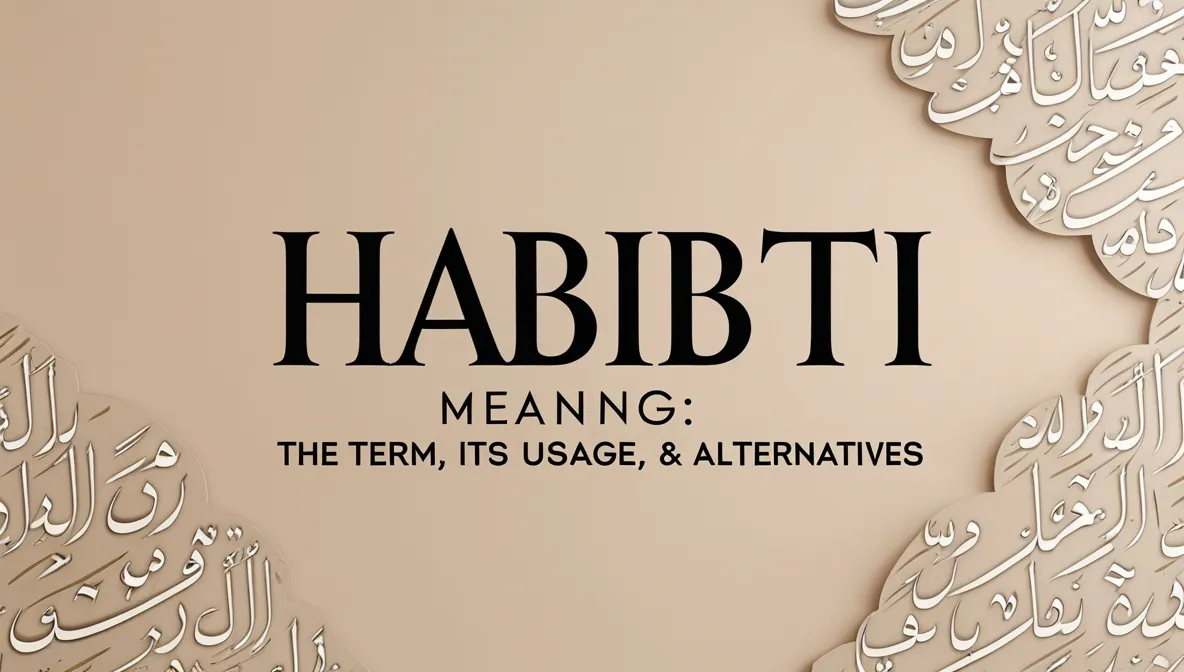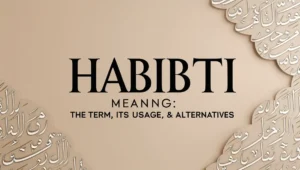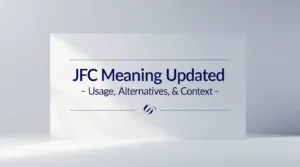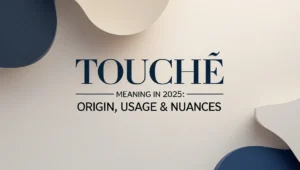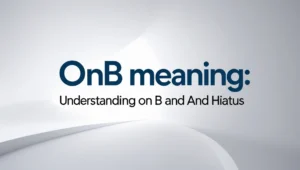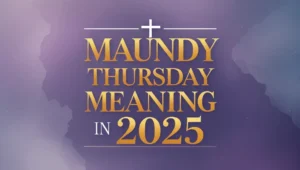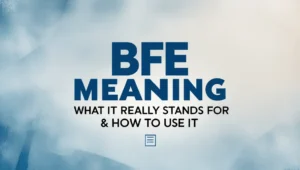In 2025, the word “Habibti” continues to trend across cultures, social media, and even modern music, drawing curiosity and admiration from non-Arabic speakers around the world. Whether you’ve heard it in a romantic song or seen someone caption a selfie with it on Instagram, the charm of this Arabic expression is undeniable. But what exactly is the Habibti meaning, and how should it be used appropriately? In this article, we’ll dive into what “Habibti” really means, when and how to use it, and explore some heartfelt alternatives that carry similar emotional weight — all while staying mindful of cultural context and modern relevance.
What Does “Habibti” Mean? Understanding the Term
The word “Habibti” (pronounced ha-beeb-tee) is derived from Arabic and translates to “my beloved”, “darling”, or “sweetheart” when directed at a female. It’s the feminine counterpart of “Habibi”, which is used to address males in a loving or affectionate way.
The root word “Habib” simply means “beloved,” and the suffix “-ti” adds a feminine and possessive touch — essentially saying “my beloved (female).” It’s a versatile term that can be used in romantic relationships, between family members like a mother and daughter, or even close female friends, depending on the emotional closeness and cultural setting.
So, what does Habibti mean? It goes beyond just a word. It’s a term that expresses affection, familiarity, and emotional intimacy.
How to Use “Habibti” in Real Conversations
Understanding the emotional tone and the context in which you use “Habibti” is crucial. In Arabic-speaking cultures, it’s completely normal to use affectionate terms frequently in daily conversation, but it’s always about who you’re saying it to and how.
For instance:
- Romantic Context: A boyfriend might say “Good morning, Habibti” to his girlfriend or wife as a way of saying “Good morning, my love.”
- Family Context: A mother might gently say “Come here, Habibti” to her daughter — more like “Come here, sweetheart.”
- Friendship Context: Two close female friends might greet each other with “Hey, Habibti!” like saying “Hey, babe!” in English slang.
However, using it with strangers or in formal situations is inappropriate and may come across as overly familiar or even disrespectful.
Why “Habibti” Is So Popular in 2025
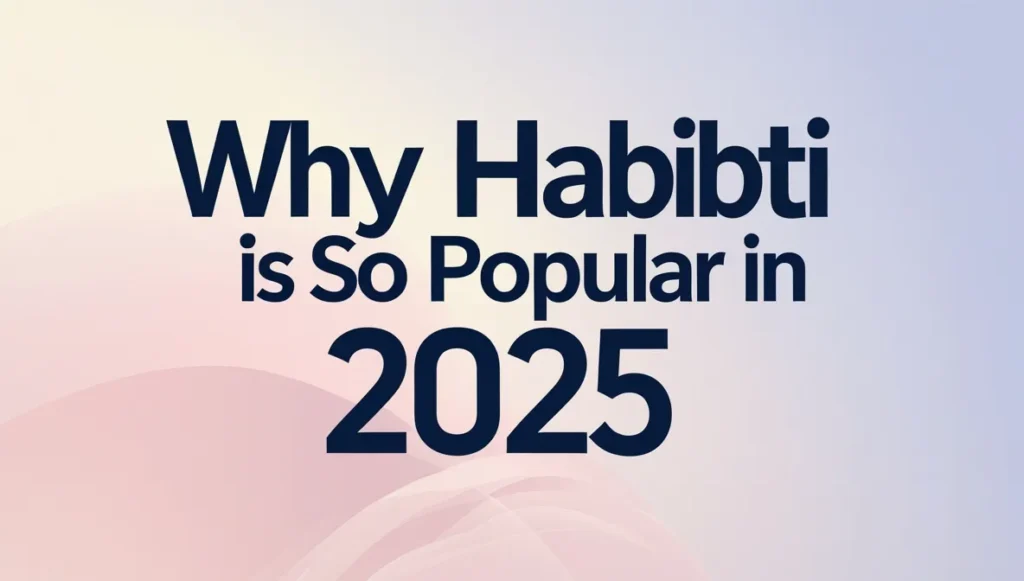
In today’s hyper-connected world, Arabic words like “Habibti” have made their way into global culture. From TikTok trends to popular Arabic songs that top international charts, the word has become widely recognized, even by people who don’t speak Arabic.
The rise of multicultural content and increased visibility of Middle Eastern influencers, celebrities, and musicians has contributed to this. “Habibti” has become more than a word — it’s almost a symbol of tenderness, affection, and sometimes luxury or style.
But with that popularity comes responsibility. It’s important not to use culturally rich terms like this purely for aesthetic or trend purposes without knowing their meaning and weight.
When You Should Not Use “Habibti”
While “Habibti” is beautiful, there are certain situations where using it may not be appropriate:
- With people you don’t know well – It can feel too intimate or presumptuous.
- In professional settings – Just like you wouldn’t call your boss “sweetheart,” avoid “Habibti” at work.
- Without understanding its meaning – Using the term incorrectly can come across as shallow or performative.
- With males – Remember, the correct term for males is “Habibi.” Using “Habibti” for men is grammatically incorrect.
- In cultures where emotional expression is more reserved – Not every context is open to such affectionate language.
Using emotionally rich words respectfully always shows deeper cultural appreciation — not just trend-following.
Modern-Day Alternatives to “Habibti”
If you’re looking to express affection but want to vary your vocabulary, here are some alternatives to “Habibti” from Arabic and other languages:
- “Habibi” – For males; it means “my love” or “my darling.”
- “Hayati” – This means “my life” in Arabic, often used romantically.
- “Rohi” – Translates to “my soul,” and is deeply affectionate.
- “Ma chérie” – French for “my darling” (feminine).
- “Tesoro” – Italian for “treasure,” often used like “sweetheart.”
- “Jaan” – From Hindi/Urdu, meaning “life” or “dear one.”
- “Canım” – Turkish for “my soul” or “my dear.”
Each of these words carries a beautiful sentiment and can be used in a variety of emotional or romantic contexts, depending on the language and relationship.
Avoiding Common Mistakes with “Habibti”
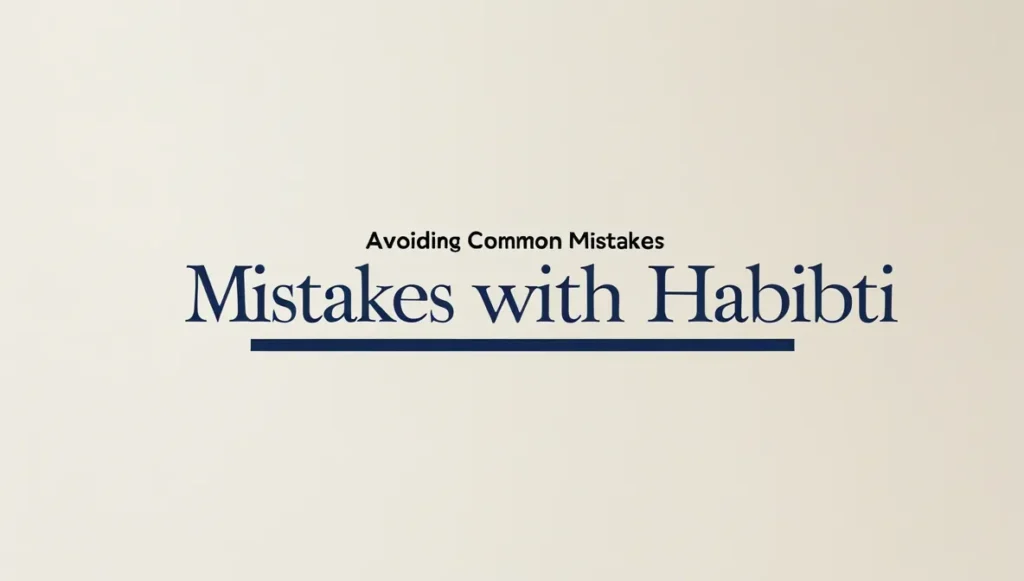
Even though the word might feel easy to use, there are some common slip-ups you’ll want to avoid:
- Mixing up Habibti and Habibi – One is for females, the other for males.
- Overusing it – Saying “Habibti” too much, especially outside close relationships, can come off as insincere.
- Using it without knowing the meaning – It’s always better to understand before you adopt.
- Pronouncing it incorrectly – If you’re going to say it, try to learn the correct pronunciation. It matters.
- Using it sarcastically – This can be offensive or come off as mocking in some contexts.
Being thoughtful in your use of affectionate language helps build genuine connections, especially across cultures.
Frequently Asked Questions About “Habibti”
1. What does “Habibti” mean in English? It means “my beloved,” “my darling,” or “my sweetheart” when addressing a female.
2. Can I use “Habibti” with male friends? No, “Habibti” is the feminine form. For males, the correct term is “Habibi.”
3. Is “Habibti” only used in romantic situations? Not at all. It can also be used affectionately with female friends, daughters, and other close female family members.
4. Do I need to be Arab to use the word “Habibti”? No, but it should be used respectfully and with a clear understanding of its meaning and context.
5. Is “Habibti” still relevant in 2025? Yes! The term is still widely used both in everyday Arabic speech and across global pop culture, with strong emotional and cultural value.
Conclusion
“Habibti” is more than just a sweet-sounding word. It carries deep emotional weight, rich cultural heritage, and versatile use across romantic, familial, and platonic relationships. In 2025, its relevance only continues to grow as people around the world seek more meaningful ways to connect and express love. Whether you’re drawn to it through music, language learning, or simply curiosity, understanding the true meaning of Habibti, how to use it respectfully, and when to say it (or not) helps you connect more deeply — and more sincerely — with others.
So next time you say “Habibti,” say it with heart, knowledge, and genuine affection.

